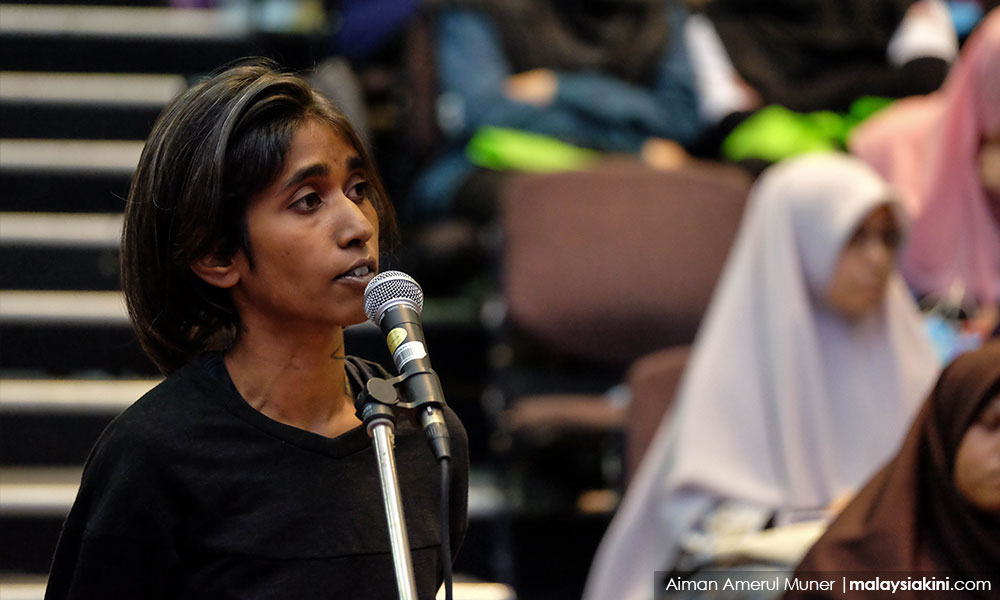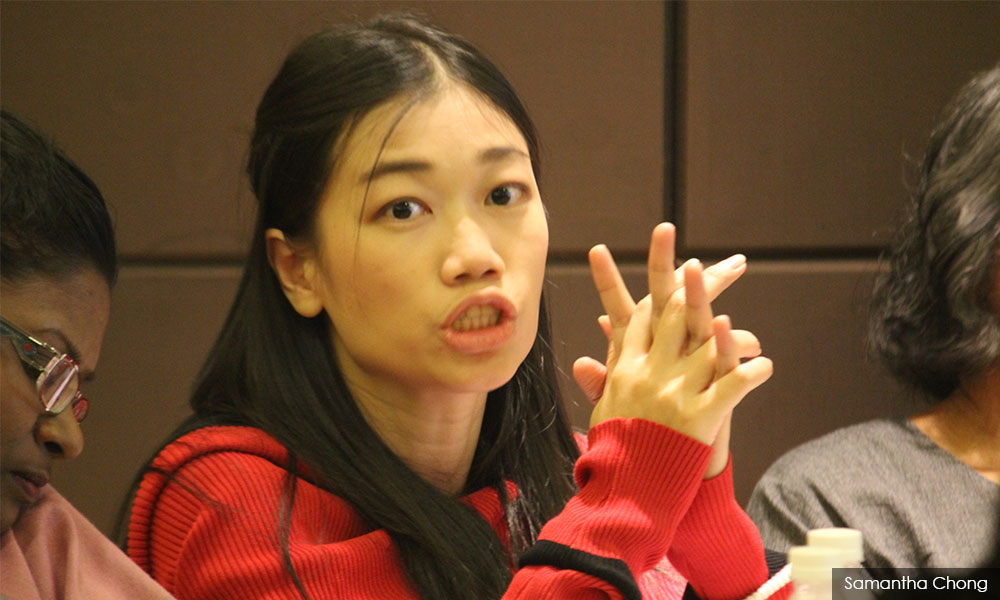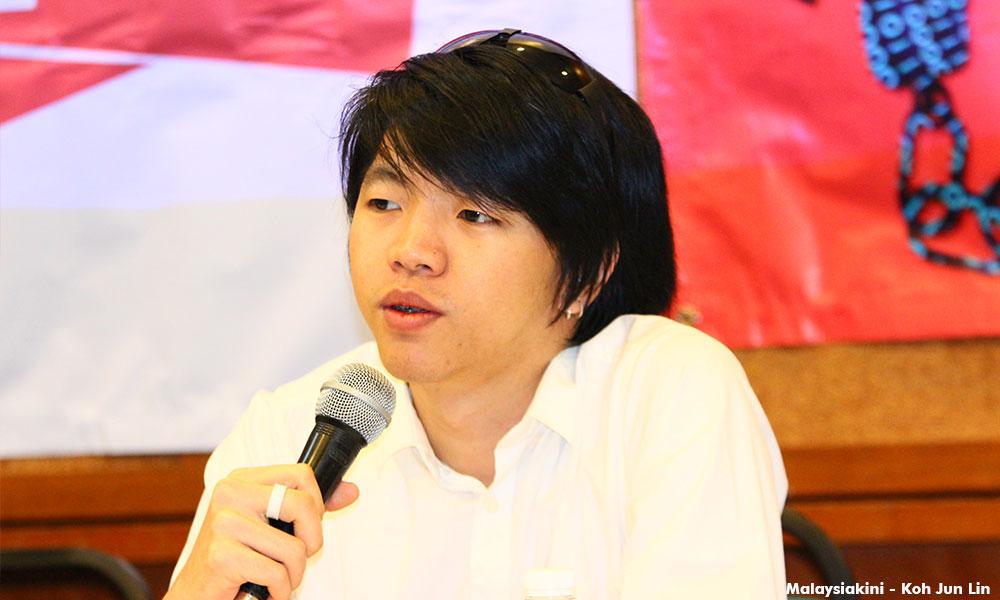
Human rights groups have urged the authorities to ensure the safety and well-being of transgender detainees after a lawyer representing a Filipino transwoman said her client was physically assaulted in Malaysian detention.
Kent Caburnay Acuin is facing her second charge for the same crime of disrupting traffic in the nude on Jalan Sultan Ismail, in what her lawyer Samantha Chong calls a case of double jeopardy.
Acuin, who was detained on March 13, faced her first charge under Section 14 of the Minor Offences Act 1955 on March 20. She pleaded guilty and paid the RM100 fine a week later.
However, she is now being detained in a male prison cell while facing a second charge under Section 509 the Penal Code for the same crime.
Malaysian transgender rights organisation Justice for Sisters pointed out that transgender prisoners or detainees are at high risk of suffering physical, emotional and even sexual violence when they are detained according to their birth gender.
"Law enforcement agencies do not have adequate policies for transgender people in detention. Thus, transwomen are housed in prison facilities with cisgender men."
"The transwoman in this case was denied bail, as she did not have a local surety, and therefore was detained in a prison for cisgender men, exposing her to multiple forms of harms," Justice for Sisters co-founder Thilaga Sulathireh (above) told Malaysiakini.
She stressed that some transgender detainees may harm themselves due to increased stress, and the police and Prison Department should ensure their safety in custody.

Chong (above) said Acuin had no legal representation when she faced her first charge. The lawyer herself was only appointed officially on March 25, and is working on this case pro bono.
When visiting Acuin in prison last week, Chong was informed by her client that she could not remember undergoing a psychiatric assessment after the arrest. Acuin also said she was physically assaulted and had her head shaved during detention.
"She only remembers being kept at the hospital briefly and was sent to police lock-up. She was punched and had bruises on her face and arms," Chong told Malaysiakini.
According to Harian Metro, Dang Wangi deputy police chief Superintendent Rudy Abdullah said on March 14 that the suspect had been sent to Hospital Kuala Lumpur (HKL) for a medical check-up after she was arrested.
Rudy stated that after questioning the doctor in charge, it had been gathered that Acuin had no mental health issues.
Psychiatric assessment
Malaysian Mental Health Association (MMHA) president Andrew Mohanraj stressed that it was necessary for Acuin to undergo “serial psychiatric assessment”.
This, he said, was because walking around naked in public is not socially acceptable behaviour, and it ordinarily indicates that the person is of unsound mind at the time of the incident.
When abnormal behaviour is suspected to be attributable to mental disorders, Mohanraj said the police should send a suspect for psychiatric evaluation and also a urine drug test.
Despite not being a compulsory police procedure, the results of the tests could then help the prosecutor file the appropriate charges, he added.
"The news report said the suspect was brought to HKL for psychiatric evaluation, but MMHA's stand is that for such bizarre behaviour, it warrants admission into a psychiatric unit for serial psychiatric assessment, including a neuropsychiatric assessment to explain such bizarre behaviour."
"Also, the news report did not mention if the suspect tested positive for drugs."
Policies for transgender detainees
Meanwhile, Suaram project coordinator Dobby Chew (below) stressed that the police and the Prison Department are obliged to ensure sick or injured detainees receive proper treatment.

"In principle, healthcare should be accessible all the time, but because of the constraint in logistics, prisons in the past have incidents where they should have brought someone to the hospital but they didn't bring them in time. And then the person died later," Chew said.
He also pointed out that the Prison Department is obliged to ensure detainees are not assaulted or threatened, especially those who are more vulnerable to violence, such as transwomen.
"If this detainee is known to be (more) susceptible to violence than other parties, or could be threatened by others, they should have kept her in a different area. It's very clear in this case, (where) a transgender person who is physically no longer a man, is being placed in a man cell which poses risks and dangers to her.
"If there is no procedure to put her in Kajang Prison for women, they could at least put her in a segregated cell or a cell that she would not be assaulted in or where she would not be put in danger."
Chew claimed that the assaults on Acuin showed that the Prison Department had been negligent.
He suggested that the Prison Department develop an adequate policy to handle transgender detainees and prisoners.
The activist added that being charged twice for the same crime was unreasonable, and reiterated the claim of Acuin’s lawyer that it constituted "double jeopardy".
"There should be no grounds for a person to be prosecuted twice for the same offence, especially they have pleaded guilty or have been convicted in the first place. Our constitution has a very clear provision on this."
According to Article 7(2) of the Federal Constitution, "a person who has been acquitted or convicted of an offence shall not be tried again for the same offence, except where the conviction or acquittal has been quashed and a retrial ordered by a court superior to that by which he was acquitted or convicted." - Mkini



No comments:
Post a Comment
Note: Only a member of this blog may post a comment.